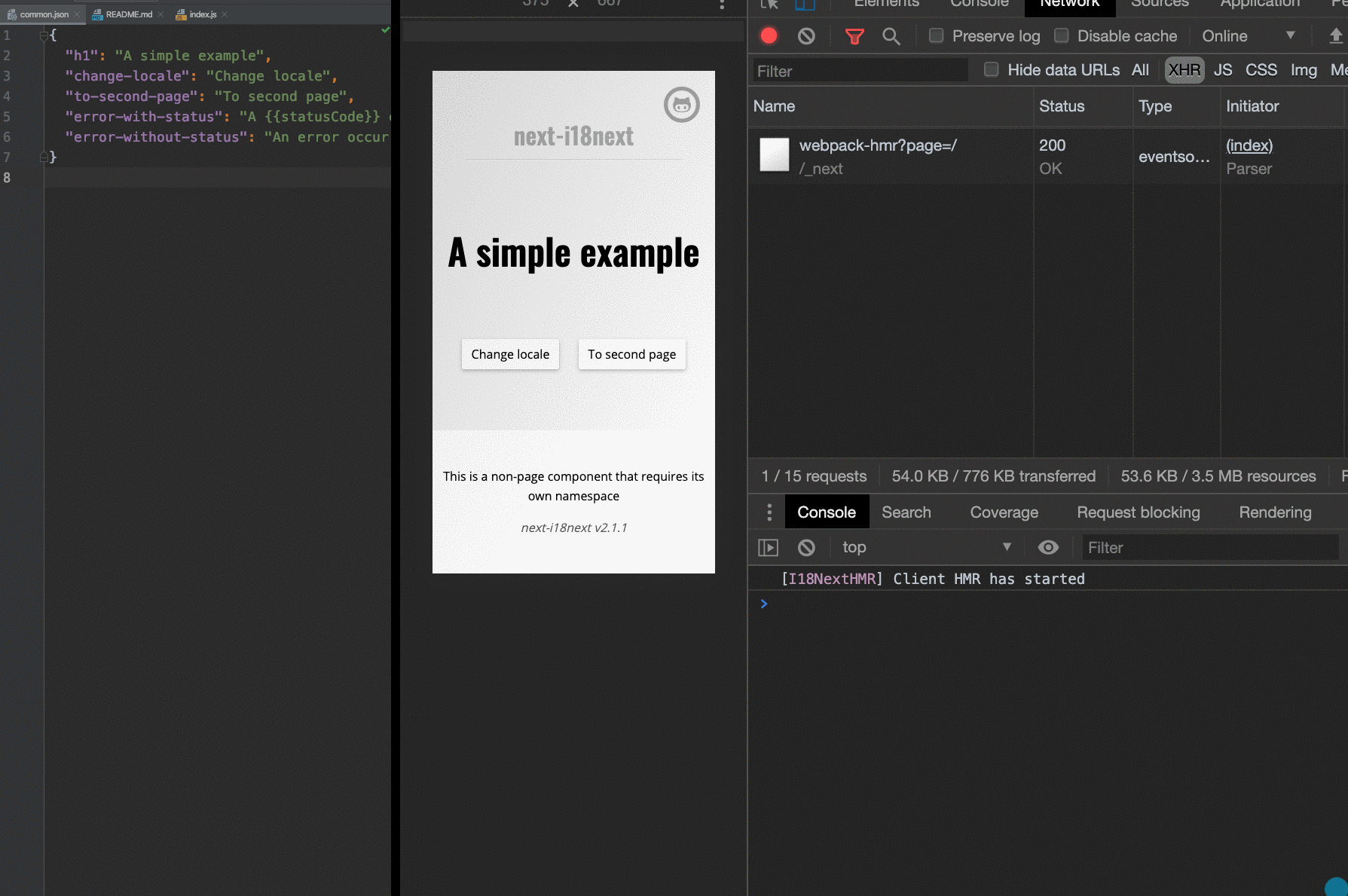
Research
Malicious npm Packages Impersonate Flashbots SDKs, Targeting Ethereum Wallet Credentials
Four npm packages disguised as cryptographic tools steal developer credentials and send them to attacker-controlled Telegram infrastructure.
i18next-hmr
Advanced tools
I18Next HMR🔥 webpack / vite plugin that allows reload translation resources instantly on the client & the server.
I18Next HMR🔥 webpack / vite plugin that allows reload translation resources instantly on the client & the server.
$ npm install --save-dev i18next-hmr
Add the plugin to your webpack config (or next.config.js).
// webpack.config.js
const { I18NextHMRPlugin } = require('i18next-hmr/webpack');
module.exports = {
...
plugins: [
new I18NextHMRPlugin({
localesDir: path.resolve(__dirname, 'static/locales'),
localesDirs: [
// use this property for multiple locales directories
]
})
]
};
// i18next.config.js
const Backend = require('i18next-http-backend');
const i18next = require('i18next');
const { HMRPlugin } = require('i18next-hmr/plugin');
const instance = i18next.use(Backend); // http-backend is required for client side reloading
if (process.env.NODE_ENV !== 'production') {
instance.use(new HMRPlugin({
webpack: {
client: typeof window !== 'undefined', // enables client side HMR in webpack
server: typeof window === 'undefined' // enables server side HMR in webpack
},
vite: {
client: typeof window !== 'undefined', // enables client side HMR in Vite
}
}));
}
instance.init(options, callback);
module.exports = instance;
Start the app with NODE_ENV=development
This lib will trigger i18n.reloadResources([lang], [ns]) on the server side with lang & namespace extracted from the translation filename that was changed.
⚠️ If your server side is bundled using Webpack, the lib will use the native HMR (if enabled), for it to work properly the lib must be bundled, therefore, you should specify the lib as not external. There are 2 ways to do that:
i18next-hmr in the whitelist.node_modules, something like:
// server.entry.js
if (process.env.NODE_ENV !== 'production') {
const { applyServerHMR } = require('../node_modules/i18next-hmr/server');
applyServerHMR(i18n);
}
The lib will invoke Webpack's / Vite HMR to update client side, that will re-fetch (with cache killer) the updated translation files and trigger i18n.changelanguage(lang) to trigger listeners (which in React apps it will update the UI).
Working examples can be found in the examples folder.
nextjs with next-i18next
FAQs
I18Next HMR🔥 webpack / vite plugin that allows reload translation resources instantly on the client & the server.
The npm package i18next-hmr receives a total of 10,096 weekly downloads. As such, i18next-hmr popularity was classified as popular.
We found that i18next-hmr demonstrated a healthy version release cadence and project activity because the last version was released less than a year ago. It has 1 open source maintainer collaborating on the project.
Did you know?

Socket for GitHub automatically highlights issues in each pull request and monitors the health of all your open source dependencies. Discover the contents of your packages and block harmful activity before you install or update your dependencies.

Research
Four npm packages disguised as cryptographic tools steal developer credentials and send them to attacker-controlled Telegram infrastructure.

Security News
Ruby maintainers from Bundler and rbenv teams are building rv to bring Python uv's speed and unified tooling approach to Ruby development.

Security News
Following last week’s supply chain attack, Nx published findings on the GitHub Actions exploit and moved npm publishing to Trusted Publishers.